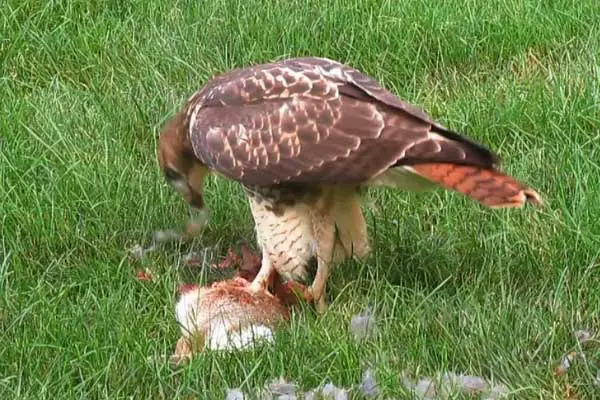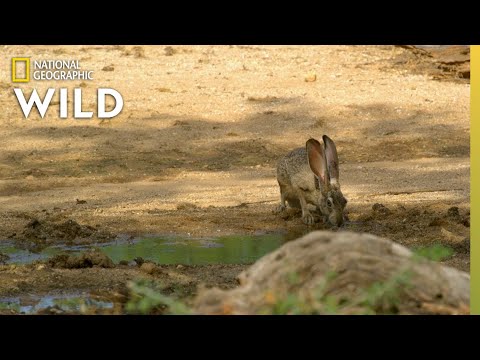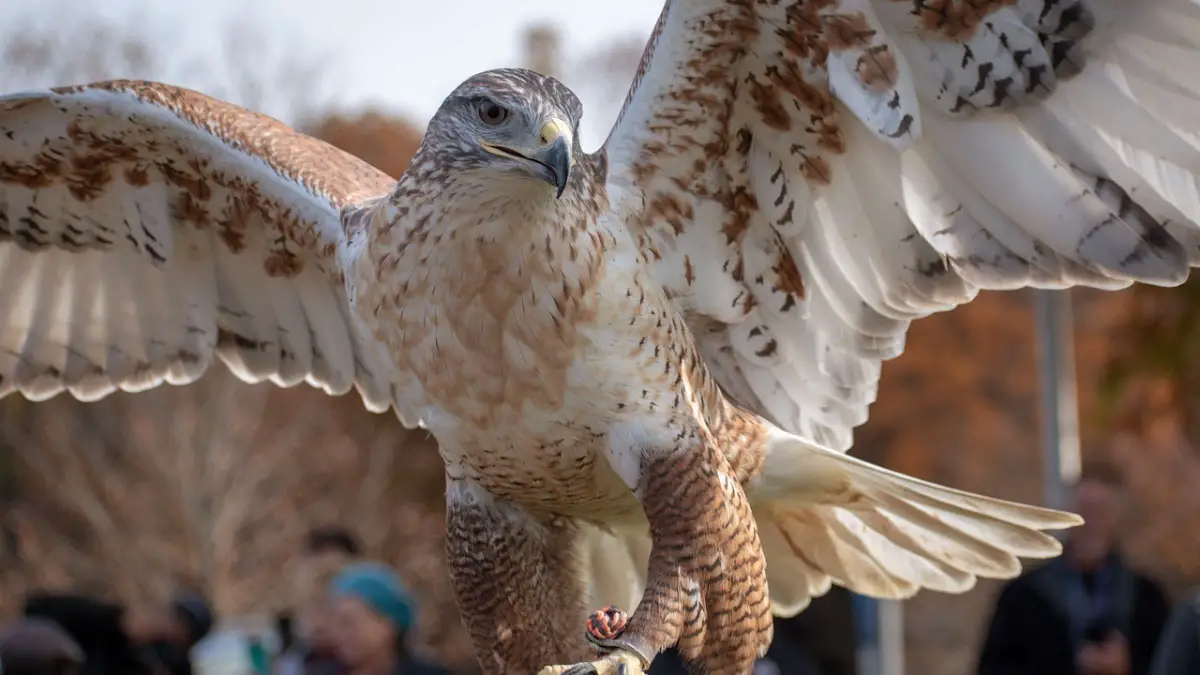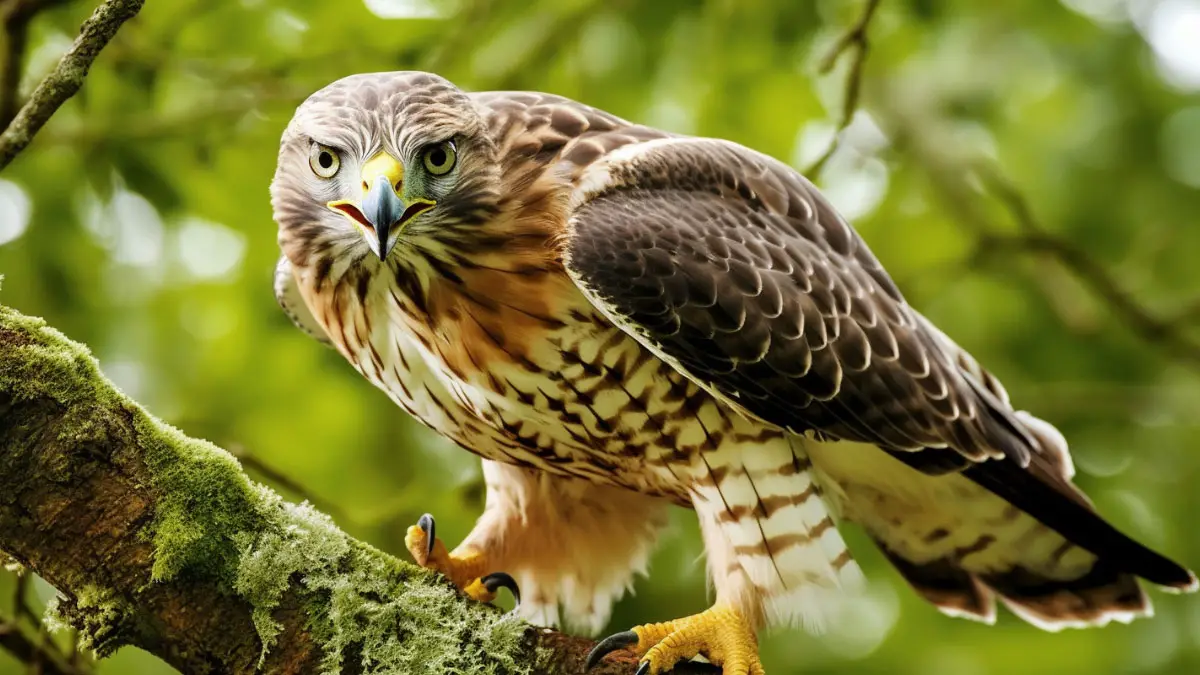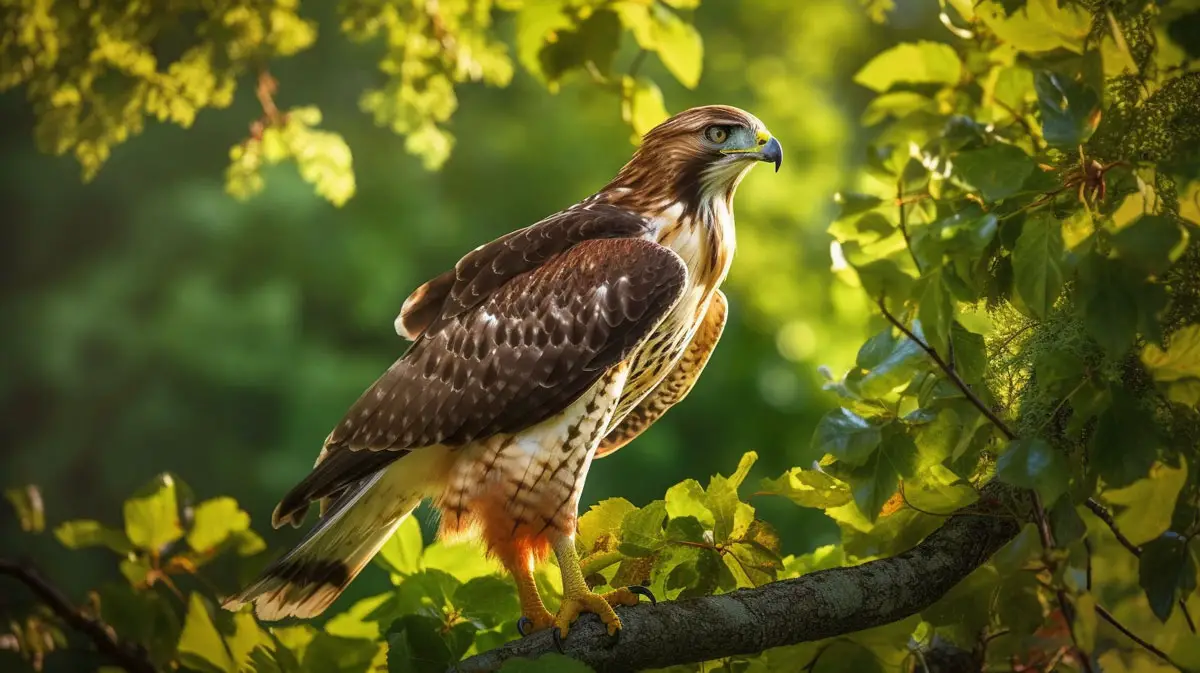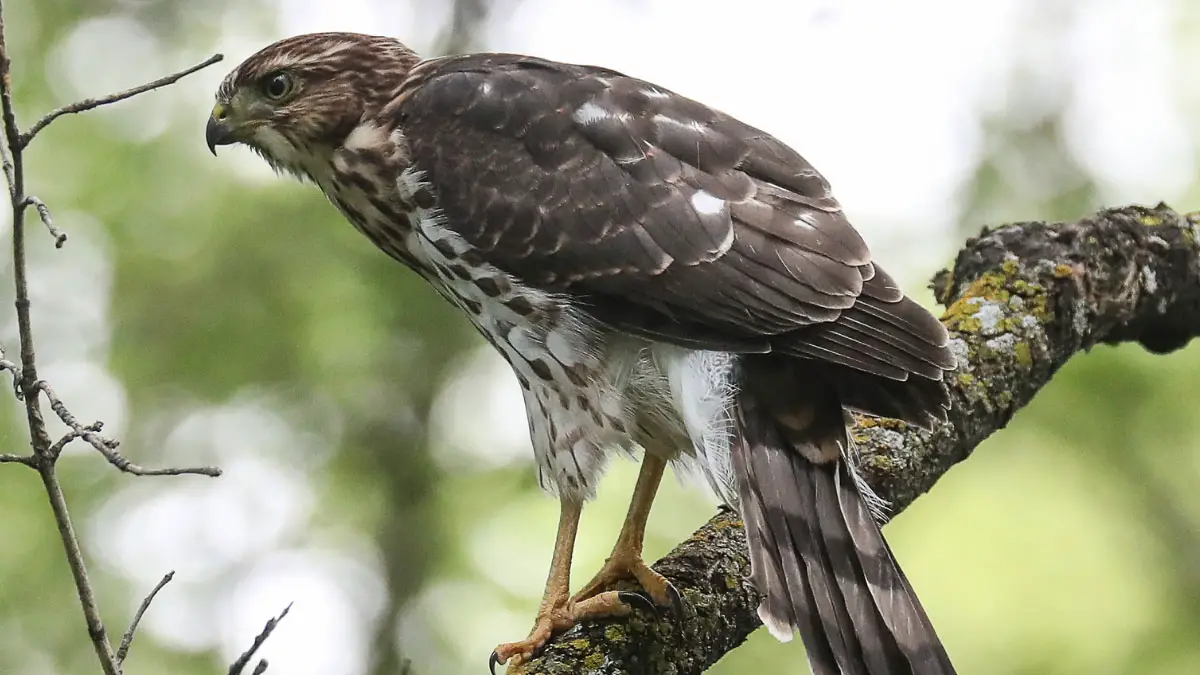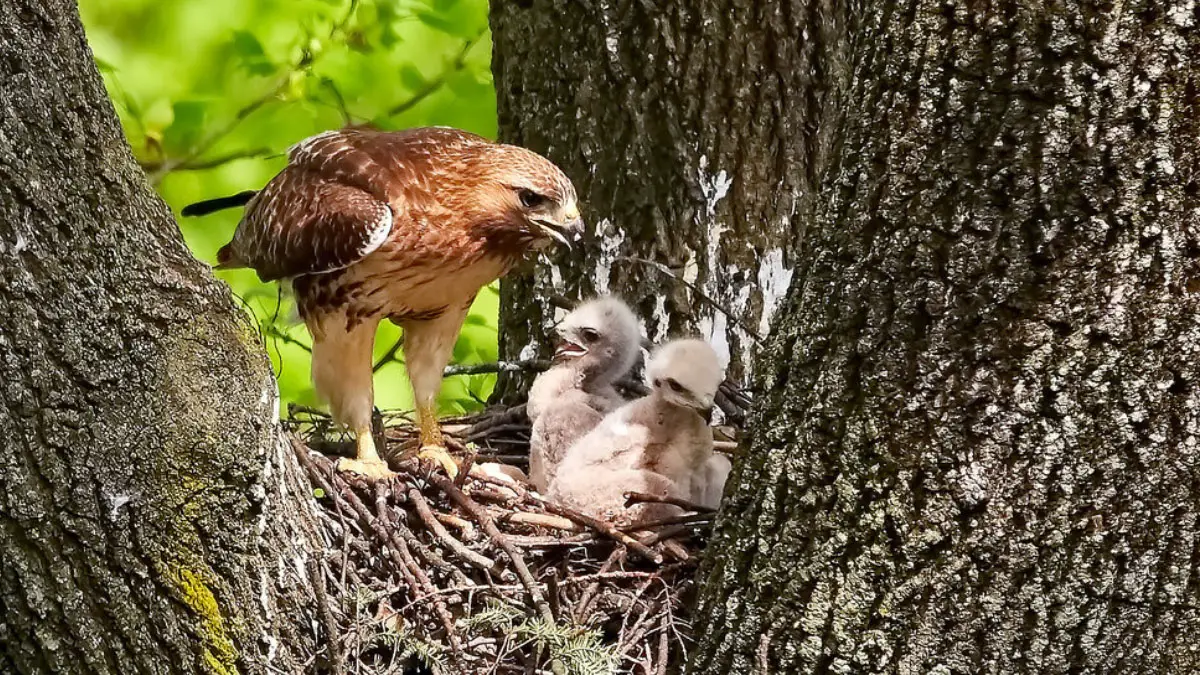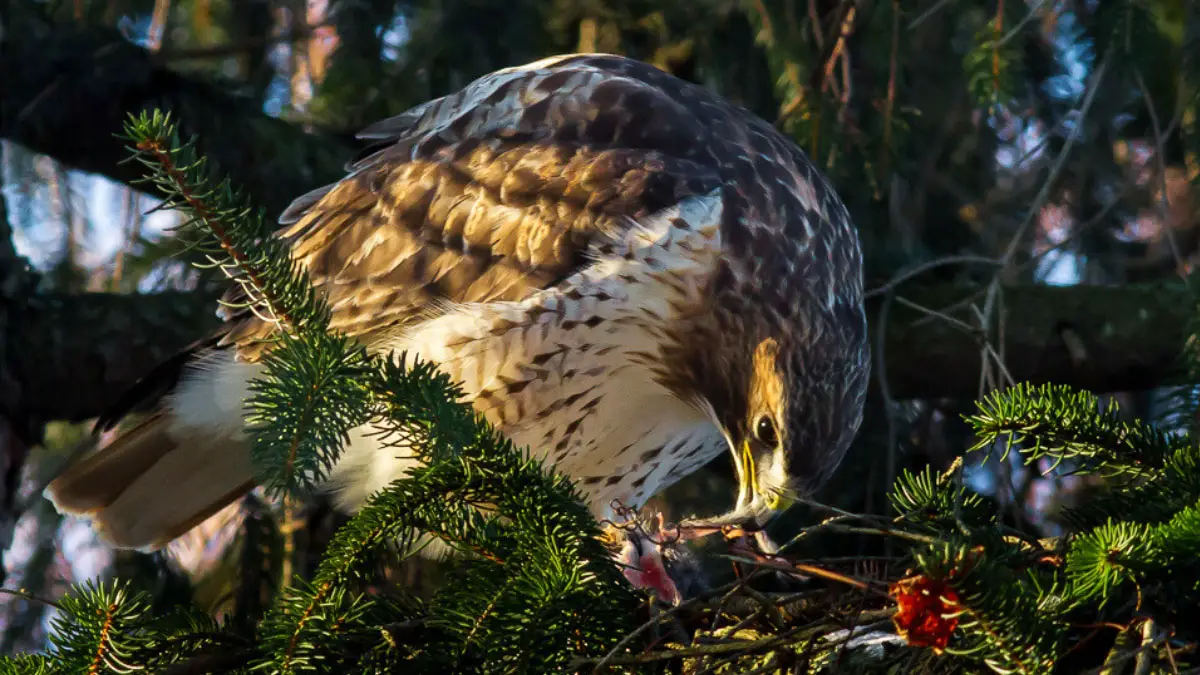Hawks can be a big thing to worry about when you own bunnies. We know a lot about hawks, so we can tell how to keep your bunny safe.
Do hawks eat bunnies? The answer would be yes. Mammals like bunnies, rats, mice, and bats are favorites of hawks. Don’t assume that all hawks hunt bunnies. Red-tailed hawks seem to hunt mostly bunnies as opposed to other species of hawk. In contrast, Cooper’s hawks or red-shouldered hawks kill other small birds for their basic source of food.
However, sometimes, Cooper’s hawks also hunt bunnies when they can’t find their usual targets. This article also explains why certain types of hawks are dangerous to bunnies and how to safeguard them against these natural predators. Moreover, here you can also be informed about the potential predators that can attack your bunny.
Do Hawks Eat Bunnies?
Among other mammals, bunnies are one of the most prized prey items for certain hawks. Hawks are well acquainted with the characteristics of bunnies. In addition to being slow and easy to catch, bunnies also provide a large amount of meat.
Therefore, hawks, especially Harris hawks, form large groups during the winter to hunt bunnies. This way, they can implement their strategy and catch many rabbits in a short amount of time.
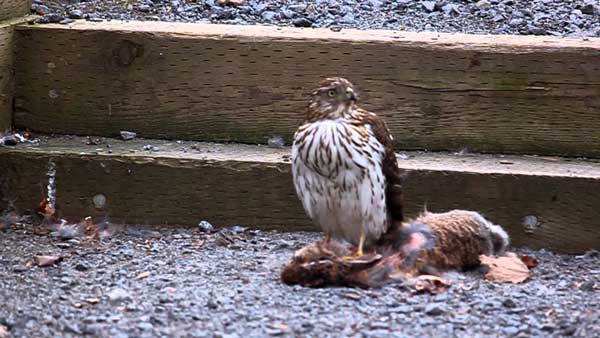
They use a technique known as ‘flush and ambush’ where they ambush a rabbit in a group and confound it. Sometimes they don’t kill them but just keep chasing after them in order to know where the warren or burrow is.
Once they find the warren or burrow, they kill them and share it with their members.
Which Hawks Eat Bunnies?
Several types of hawks prey on mammals, particularly bunnies, as their primary food source. Of these predatory groups, red-tailed hawks are the most common. predators. You can find them in forests as well as in cities. Bunnies are one of the main targets, but they also kill birds and squirrels.
Apart from the red-tailed hawk, the ferruginous hawk, Cooper’s hawk, and northern goshawk are other sharp-shinned hawks that love to hunt big mammals. So rabbits and bunnies are also on their priority list. However, these animals are becoming an issue because they are moving from the forests into urban areas.
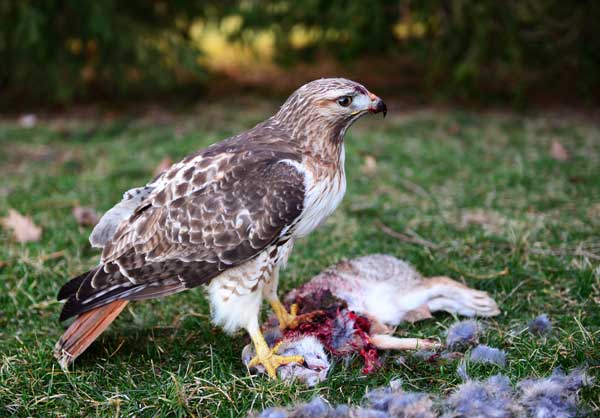
- Red-tailed hawks: Length more than 60 cm, the weight of 1.2 Kg; brown color. Mammals like squirrels, rats, and rabbits are the main targets.
- Ferruginous hawk: Length 60 cm or less, weight 1.5 kg; reddish-brown color. Kangaroo rats, mice, birds, bunnies, and snakes are on the priority list.
- Cooper’s hawk: Lengthwise less than 50 cm, weight more or less 530 grams; blue-gray color with rounded wings. Squirrels and larger birds are the main targets, but they also hunt wild rabbits as primary sources of food.
- Northern Goshawk: Length 60 cm, weight 600 g to 1.5 kg, dark slate gray color with powerful talons. They like different types of birds, but besides that, they kill insects, squirrels, and rabbits as well.
If we talk about the other types of common hawks like Broad-Winged Hawks or Swainson’s Hawks. They mostly eat little insects and birds. Mammals are too big for them.
How Does a Hawk Kill Bunnies?
Hawks have multiple strategies to kill rabbits. While they sometimes hunt their prey alone, they usually have partners with whom they work together.
At the initial stage of hunting, hawks take a long time to investigate and read the movement of the rabbits. However, when they gain prior knowledge of the movement, they act.
Hawks try to kill rabbits as quickly as possible if they are alone; otherwise, the rabbits will escape. When it comes to parent hawks, the mother hawk blocks the rabbit’s path, and the father hawk hunts it down.
A hawk tries to get as close to the rabbit as possible. After that, it snatches the rabbit’s neck region with its feet.
Generally, hawks hunt at night because it’s very hard to hide at night from rabbits since they are very slow-moving creatures.
However, rabbits also have their own techniques for survival. Birds of prey are always a threat, so they always try to stay alert. They will sometimes act like dead rabbits in order to avoid being seen.
How Can You Save Your Bunnies From Hawks?
Here are a few suggestions that will help you keep your bunnies safe from hawks and other predators. Take them into consideration while preparing your rabbit’s home.
- Your bunnies should never be let loose at night – if they are kept in their cages, then you can go ahead. However, if it’s an open area, then letting them stay outside is highly dangerous. The reason is that hawks always keep an eye on targets.
And as we have mentioned earlier, the night is the best time for hunting. It will be easier for them to take down bunnies at night rather than in the daytime.
- Build a predator-proof cage for bunnies – If you haven’t made a cage for your bunnies yet, now is the perfect time to make one before losing any more. Because cages give good protection from hawks. Besides hawks, they will also provide protection from snakes and other predators like foxes and wild cats.
The most important thing is that you don’t need to check them again and again.
- Hide your backyard from predators – Try to cover up the area where bunnies live. Because as long as bunnies are not watched by predators, they are in a safe position. Thus, you should use tent clothes or something similar to cover up the top area.
- Clean your yard – Predators will easily get attracted to an untidy yard full of bush and big grass. As a result, the chances of your bunnies being attacked by different predators will increase. So it would be great if you kept it clean and well fixed.
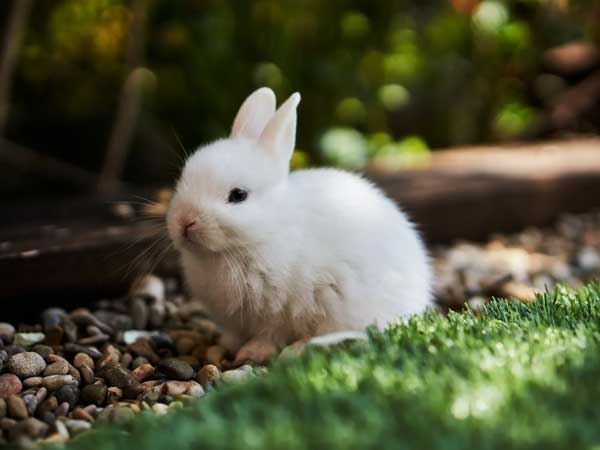
FAQ
Here we have answered some frequently asked questions about hawks and predators.
Frankly, it is not usual for a hawk to lift a whole big rabbit, but it is not impossible either. If the hawks are big enough, then it is possible quite easily. But mostly, we see that hawks lift the bunnies because they are small and light.
Anyway, it actually depends on the size of the rabbit. But you can bet that if the hawks get a chance, they’ll take them away by lifting or whatever it takes.
Adult cats or puppies have also been seen being lifted by hawks. So it won’t be hard to carry baby rabbits or even adults one by a hawk.
Because rabbits are prey animals, there is a long list of predators. Predators most commonly encountered
1. Wolves
2. Fox
3. Coyotes
4. Hawks
5. Raccoons
6. Wild cats
7. Dogs
8. Eagle
9. Crow
10. Snakes
Final Words
So you’ve probably figured out the answer to your question: Do hawks eat bunnies or not? Bunnies are like natural prey to many predators. Especially when it comes to hawks, they rely heavily on rabbits as a source of food.
Besides red-tailed hawks, there are also three other types of hawks that are most likely to hunt bunnies. Though they have some different characteristics, they still share similar food preferences.
Later on, we discussed how hawks attack bunnies and how you can protect your bunnies from these predators. In that section, we provided four suggestions, which should be sufficient to keep your bunny safe. Lastly, we wrapped this up by sharing some common predators’ names that prey on rabbits.
Do you want to know if hawks eat hummingbirds or dogs? Read our articles about it to learn more.
